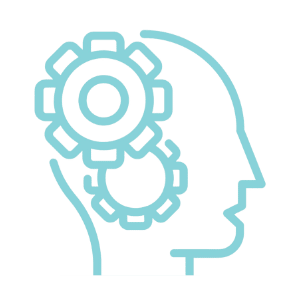Recommended Reading
BY LEANNE ELICH CONSULTING

I often reference this book as Dr Robert Cialdini beautifully explains the 7 Principles of Influence. The book describes the psychology of why people say “yes” — and how to apply these understandings. Dr Robert Cialdini is an expert in the field of influence and persuasion. His thirty-five years of rigorous, evidence-based research, along with a three-year program of study on what moves people to change their behaviour has resulted in this highly acclaimed book.

One of my all-time favourites and my constant go-to for behavioural science.
This well-written and easy read introduces the concept of “nudging” — using science to arrange the environment so that people are more likely to choose a particular option or behaviour. Nobel Prize winner Richard H. Thaler shows that by knowing how people think, we can use sensible “choice architecture” to nudge people toward their best decisions.

Thinking Fast and Slow is an astonishingly rich book: lucid, profound, full of intellectual surprises and self-help value. It is consistently entertaining and frequently touching, an eye-opening book jam-packed with useful content. Daniel Kahneman even won a Nobel Prize in 2002 for his work. The book refers to the interactions between what he terms ‘system 1’ and ‘system 2’ thinking.

Solving the Sales Equation provides a development platform to build the world’s best salespeople. The book dives deeply into frequent sales challenges, making a winning first impression, building rapport and understanding the psychology behind customer behaviours.
It is designed to help you focus, develop and practise phenomenal sales skills needed to be successful in today’s world of selling. Leanne Elich’s method, framework and toolkit have been curated over decades of experience in consumer psychology, neuromarketing and behavioural science in sales.

Predictably Irrational: The Hidden Forces That Shape Our Decisions – by Dan Ariely
When making decisions in our lives, we think we’re making smart, rational choices.
In this groundbreaking New York Times bestseller, Dan Ariely challenges your assumptions about making decisions based on rational thought.
Predictably Irrational is entertaining and surprising and unmasks the subtle but powerful tricks our minds play on us. I love that it challenges the common belief that we behave in fundamentally rational ways.

The Paradox of Choice – by Barry Schwartz
I have lost count of how many times I have watched Barry Schwartz‘s TED talk. It’s over 10 years old, but still mind-blowing.
In The Paradox of Choice, Barry Schwartz contends that the vast array of choices presented to us leaves us stressed and indecisive. To lift this burden, Schwartz, a professor of social theory and social action, recommends we learn how to better navigate our choices, from groceries to health insurance.

As an accredited Conversational Intelligence C-IQ teacher and facilitator, I recommend this book to clients almost daily. The key to success in life and business is how open you are to learn new and effective powerful conversational rituals that prime our brain for trust, partnership, and mutual success. Conversational Intelligence translates the wealth of new insights coming out of neuroscience from across the globe, and makes complex scientific material simple to understand and apply through a wealth of easy to use tools, examples, conversational rituals, and practices for all levels of an organisation.

The Hero and the Outlaw: Building Extraordinary Brands Through the Power of Archetypes – by Margaret Mark, Carol Pearson
The Hero and the Outlaw explains the fundamental meaning of Archetypes and is the basis of much of my work. How a business resonates in the public heart and mind is a company’s most valuable competitive advantage. Yet, few companies really know how this works nor how to use their brand strategically. This groundbreaking book provides the elusive and compelling answer. It shows that the most successful brands are those that most effectively correspond to fundamental patterns in the unconscious mind known as Archetypes.

Atomic Habits – by James Clear
Atomic Habits is more than just very good. In my opinion, it’s so good that I would file it under the elite category of books that can actually change your life.
This is a motion that I do not at all take lightly.
In Atomic Habits, James Clear argues that adopting the right habits will drastically improve your life—but to do so, you must understand how habits work and how you can change yours.

In Misbehaving: The Making of Behavioural Economics, Richard H. Thaler, one of the founders of behavioural economics, takes us on an entertaining journey through its evolution.
Thaler’s gift for writing has produced a book that is a blend of his life as a professor, stories of other economists he met along the way, and a history of behavioural economics.

Consumer.ology: The Truth about Consumers and the Psychology of Shopping – by Philip Graves
Consumer.ology exposes some of the most expensive examples of research-driven thinking clouding judgement, experience and evidence. Failures include New Coke to General Motors, from Mattel to the Millennium Dome. What I love is that it also showcases instances of success through ignoring market research principles, such as Baileys and Dr Who. It also suggests some tools and ideas businesses should be using if they want to understand their customers.

Hooked: How to Build Habit-Forming Products – Nir Eyal
Modern technology has us addicted to its use. While you might be aware that you’re addicted to your phone or favourite apps, you might not know exactly how you got addicted. It just happened without you noticing it. Hooked provides a useful framework on how tech products build lasting habits in their users. Understanding this is useful for product designers and users alike.
The core of the Hooked model is the 4-step feedback loop: Trigger, Action, Reward, and Investment.

